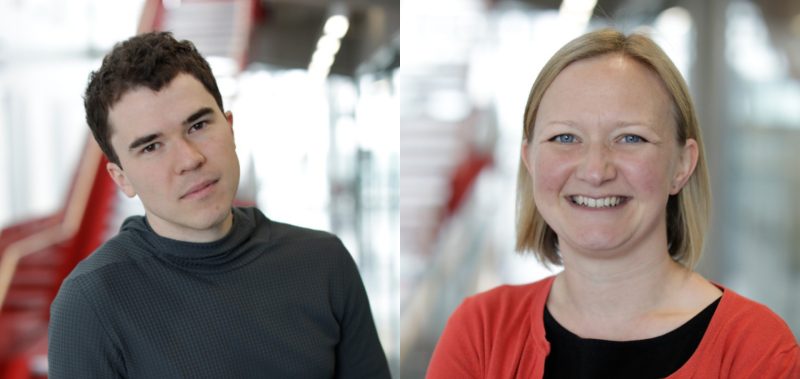Two group heads from the MRC Laboratory of Medical Sciences (LMS), Dr Alexis Barr and Dr Karen Sarkisyan, have received funding for global, interdisciplinary research projects between UK and Japanese universities in the field of engineering biology – an emerging priority area for both countries.
By Emily Armstrong
November 19, 2024
Time to read: 3 minutes

The funding is awarded by the Biotechnology and Biological Sciences Research Council (BBSRC), part of United Kingdom Research and Innovation (UKRI), and the Japan Science and Technology Agency (JST), and aims to support research projects focused on the fundamentals of engineering biology and cross-cutting technologies. These awards allow top scientists from the UK and Japan to collaborate at a deep and meaningful level by working in each other’s countries and becoming embedded in different academic and research cultures. It’s rare for funding to be awarded with a 50:50 international split like this. The two exciting new projects that our scientists are involved in are:
Sentinel plants are plant species that scientists can use as indicators of environmental changes due to their sensitivity to various environmental factors, such as soil quality, water availability and air pollution. Dr Karen Sarkisyan, Head of the Synthetic Biology Group at the LMS, is leading a project to explore the creation of sentinel plants that emit light to signal responses to pests or pathogens. By leveraging advances in synthetic biology, Karen and his international and interdisciplinary team aim to better understand plant stress responses in real time. The sentinel plants developed in this project will be useful for studying how plants interact with other organisms in their environment and may contribute to improved agricultural practices of the future. Karen will work in partnership with teams in Japan led by Professor Fyodor Kondrashov and Professor Hidetoshi Saze, both from Okinawa Institute of Science and Technology.
Our body’s cells survive and multiply by sensing and responding to environmental triggers through signals that modify their internal functions. The biochemical cell signalling pathways that cells use to do this are vast and complex. Research has focused on understanding how isolated pathways in cell signalling work, and although some of these are well characterised, we still have an incomplete understanding of how complex cellular regulation involving multiple pathways works. This can make it difficult to predict how cells will respond to therapeutic drugs that target cellular signalling pathways, and this is one of the reasons many drug discovery efforts to fail. To address the unpredictable responses to therapeutics, a holistic approach is needed to grasp the intricate communication networks influencing cell functions. The Bioengage project will take a multidisciplinary approach to engineer cells that respond to natural and artificial environmental triggers with a pre-programmed outcome, such as cell death or cell proliferation, determined by a synthetic cell signalling pathway. By controlling cell outcomes, this could one day enable researchers to test ideas about how we can overcome resistance to cancer treatments and develop more effective therapies. The Bioengage project is led by Professor Richard Bayliss from the University of Leeds. The UK team also includes Dr Alexis Barr, from Imperial College London and Head of the Cell Cycle Control Group at the LMS, as well as other collaborators from Imperial, Leeds and The Francis Crick Institute. The Japan team is led by Professor Mariko Okada, former director of the Institute for Protein Research at Osaka University, and includes scientists from Osaka, Tokyo and Kyoto Universities and the research institute RIKEN.